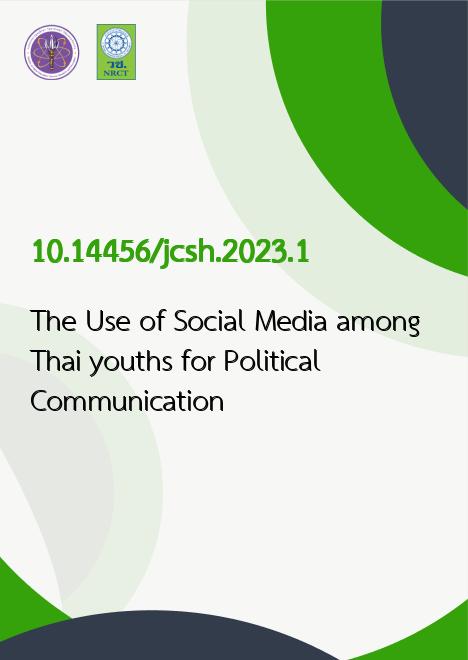
|
The Use of Social Media among Thai youths for Political Communication |
|---|---|
| รหัสดีโอไอ | |
| Creator | Khanittha Jitsaeng |
| Title | The Use of Social Media among Thai youths for Political Communication |
| Publisher | Rangsit University |
| Publication Year | 2566 |
| Journal Title | Journal of Contemporary Social Sciences and Humanities |
| Journal Vol. | 10 |
| Journal No. | 1 |
| Page no. | 1-10 |
| Keyword | social media, political communication, youths |
| URL Website | https://jcsh.rsu.ac.th |
| ISSN | 2985-0541 |
| Abstract | Political communication is one of the most important processes in Thailand’s political system, as well as other democratic societies, as the success of its democratic governance depends on the connection between the people and the state through their public space. Consequently, social media has the potential to enhance Thai youths’ access to political information, facilitate wider-ranging political discussions, and foster political mobilization through its spaces. This research, therefore, aimed at studying the use of social media for political communication among Thai youths in today’s digital society. Four hundred samples were collected through multi-stage sampling from undergraduate students studying at higher education institutions in Thailand. A questionnaire was used as a research tool for gathering data, in which the content validity of the questionnaire was examined. Cronbach's alpha was also applied in a pre-test stage to measure the reliability of the research instrument. The alpha coefficient for all items was 0.92. The results found that more than half of the responding youths demonstrated a high use of Facebook and Twitter (58.4% and 52.7%, respectively), yet a low use of YouTube for political communication (47.5%). More than 90.0% of the Thai students followed political news from news feeds on Facebook media pages and online TV programs and newspapers; where more than 80.0 percent followed political news from interesting news stations/news media outlets via Twitter. In political discussions, roughly 70.0 percent of the youths discussed political issues via Messenger, and 63.0 percent of youths exchanged ideas with like-minded and dissimilar political figures via Twitter. In terms of political mobilization, nearly 70 percent wrote/expressed their support or opposition to political activities via Facebook, followed by Twitter (67.5%) and YouTube (38.7%). |